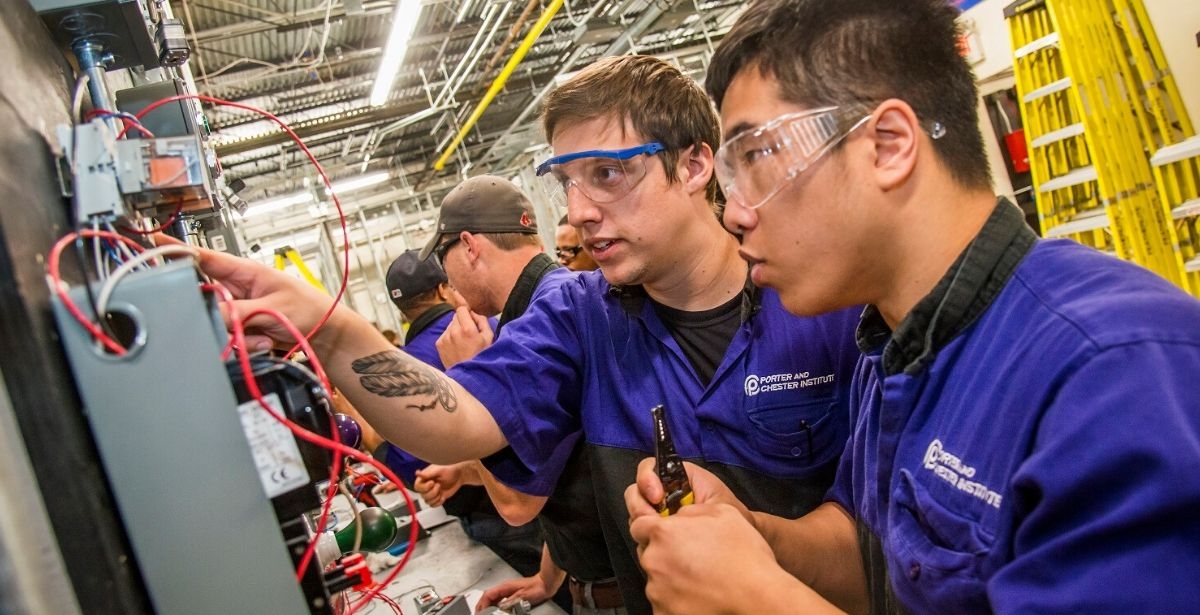To become an electrician, the necessary qualifications include completing a formal training program or apprenticeship and obtaining a license or certification in electrical work. Electricians undergo rigorous training programs or apprenticeships and must obtain a license or certification to practice their trade.
These qualifications ensure that electricians have a solid foundation of knowledge and practical skills to safely and effectively handle electrical systems. The training programs typically cover subjects such as electrical theory, blueprint reading, wiring techniques, and electrical code requirements. In addition to formal training, aspiring electricians also gain valuable hands-on experience by working with experienced professionals.
Upon completion of the training program, aspiring electricians must pass a licensing exam to demonstrate their competency in electrical work. Achieving these qualifications is essential for individuals seeking to pursue a successful and fulfilling career as an electrician.
Education And Training Requirements
Education and Training Requirements
To become an electrician, a high school diploma or its equivalent is typically required. This provides a foundational level of education necessary for the trade. However, in addition to this, there are further education and training requirements that aspiring electricians must fulfill.
Completion of a trade school or technical program in electrical work
Attending a trade school or technical program specializing in electrical work is highly recommended. These programs provide comprehensive training and practical experience in the field. They cover topics such as electrical theories, circuitry, wiring techniques, safety protocols, and relevant codes and regulations. By completing such a program, individuals gain a solid understanding of electrical systems, troubleshooting methods, and industry practices.
Apprenticeship program
An apprenticeship program is a crucial step towards becoming a certified electrician. These programs provide hands-on experience under the guidance of experienced professionals. Apprentices learn on-the-job skills, including installation, maintenance, and repair techniques. They also acquire practical knowledge about electrical systems in different settings, such as residential, commercial, and industrial environments. Apprenticeship programs typically last for several years, allowing individuals to develop the necessary expertise and gain practical knowledge before becoming fully licensed electricians.
Licensing And Certification
To become an electrician, one must fulfill certain qualifications and obtain the necessary licenses and certifications. State licensing requirements vary, so it is crucial to research and understand the specific prerequisites in the desired location. These requirements typically involve a combination of classroom education, on-the-job training, and passing an exam. Additionally, electricians can pursue journeyman and master level certifications, which demonstrate a higher level of expertise and skill. These certifications often require meeting specific experience criteria and passing additional examinations. Furthermore, electricians are encouraged to participate in continuing education and training programs to stay updated with the latest advancements in the field. These programs help solidify knowledge, enhance technical abilities, and maintain licensure. By meeting these qualifications and engaging in professional development opportunities, individuals can pave the way for a successful career as an electrician.
Skills And Experience
To become a successful electrician, several qualifications and skills are required. One of the key skills is knowledge of electrical codes and regulations. Electricians must be familiar with local, state, and national regulations to ensure that all electrical work is up to code and safe to use. Additionally, proficiency in reading blueprints and technical diagrams is essential for understanding electrical layouts and installations.
Moreover, experience in electrical installation and repair work is crucial. Electricians should have hands-on experience in different types of installations, repairs, and maintenance work. This experience helps them become more adept at identifying and troubleshooting various electrical issues.

Credit: cetweb.edu
Specializations
When it comes to becoming an electrician, there are various qualifications needed based on the desired specialization. Electricians can specialize in residential, commercial, or industrial work.
For those interested in becoming a residential electrician, they need to complete an apprenticeship program or a vocational training program, which usually takes around 3-5 years to complete. Residential electricians are responsible for installing, repairing, and maintaining electrical systems in homes.
If you aspire to be a commercial electrician, further training and qualifications are required. Alongside completing an apprenticeship, commercial electricians often need to obtain additional certifications and licenses, depending on the state or country. Their work focuses on the electrical systems in commercial buildings such as offices, stores, and restaurants.
Industrial electricians work in industrial settings such as factories and power plants. They require more specialized knowledge and training due to the complexity of the systems they work with. Industrial electricians often complete post-secondary education and apprenticeships to develop their skills.
| Specialization | Qualifications |
|---|---|
| Residential electrician | Apprenticeship or vocational training program |
| Commercial electrician | Apprenticeship, additional certifications, and licenses |
| Industrial electrician | Post-secondary education, apprenticeship |
Additional Qualifications
Additional Qualifications:
To become an electrician, it is important to possess certain additional qualifications that complement the necessary technical skills. These include physical stamina and strength, as the job often involves lifting heavy equipment and working in physically demanding environments. Having good problem-solving and critical-thinking skills is also essential, as electricians frequently encounter complex electrical issues that require quick thinking and innovative solutions. Moreover, a strong sense of safety-consciousness is crucial to prevent accidents and ensure compliance with industry regulations. With these additional qualifications, aspiring electricians can enhance their proficiency and competitiveness in the field.
Conclusion
Becoming an electrician requires a combination of education, practical experience, and necessary certifications. By gaining a high school diploma or equivalent, completing an apprenticeship program, and obtaining a state license, individuals can enter this rewarding field. Continual learning and staying updated with the latest advancements in electrical technology are essential in establishing oneself as a skilled electrician.
With the growing demand for electricity in various sectors, this profession offers a stable and lucrative career path for those passionate about working with electrical systems.







